Abstract
Diffuse axonal injury typified by retraction balls and axonal swellings was identified in the brains of a series of infants, 5 months old and younger, who had suffered closed head injuries. These axonal discontinuities were shown by using Nauomenko and Feigin's silver method, which is particularly useful for showing fine axons such as those found in the developing brain. Diffuse axonal injury in early infancy may occur in the same way as that described in adults. The low incidence of intracerebral haematomata suggests that recurrent trauma to the head from a combination of direct contact and shaking results in axonal damage to the poorly myelinated axons and that blood vessels are rarely damaged.
Full text
PDF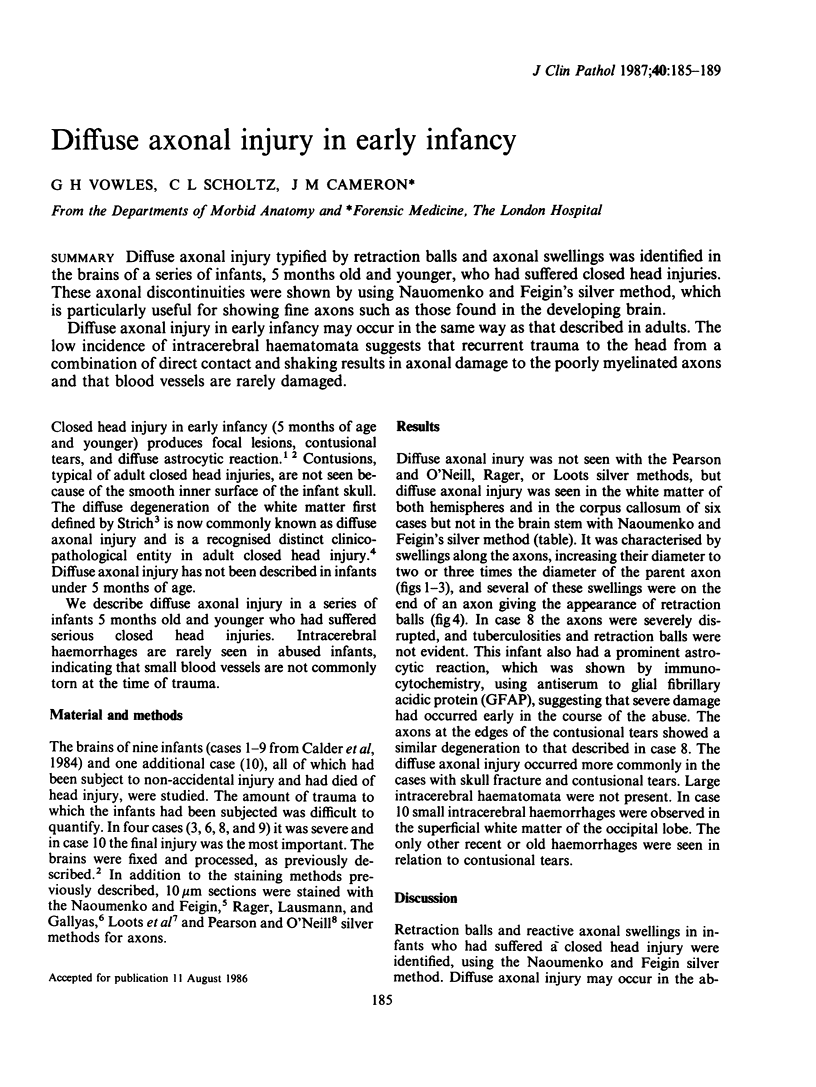
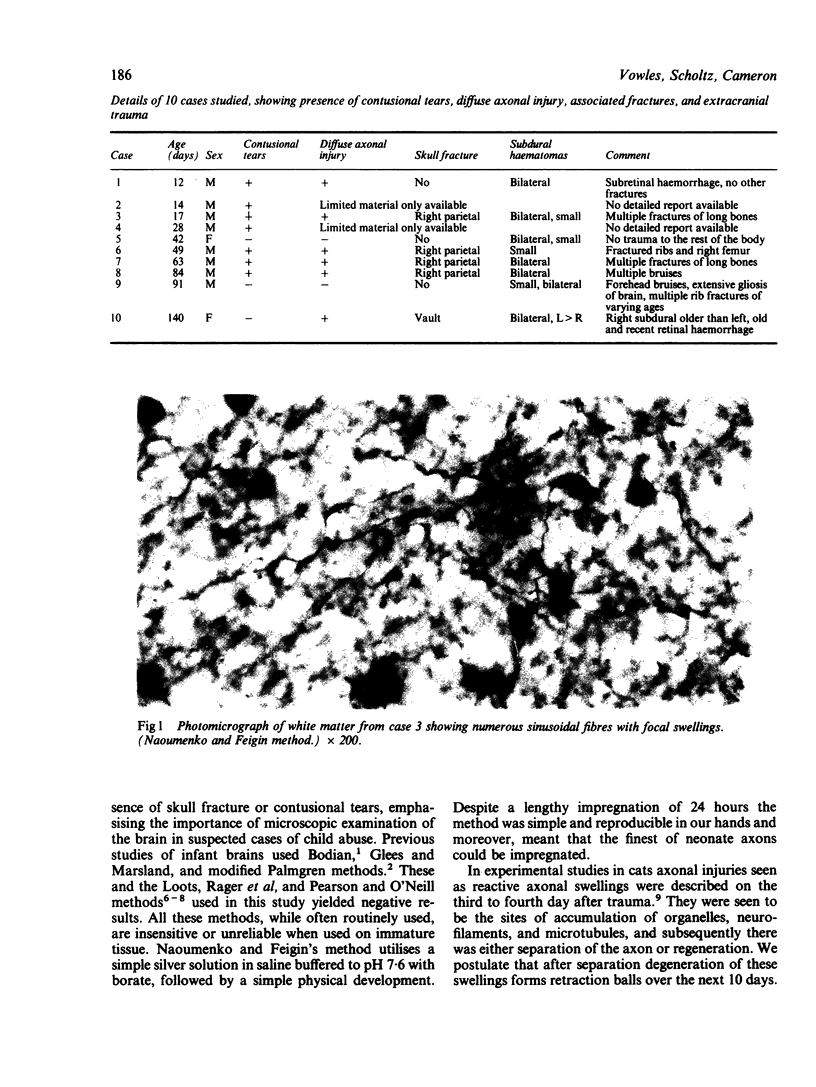
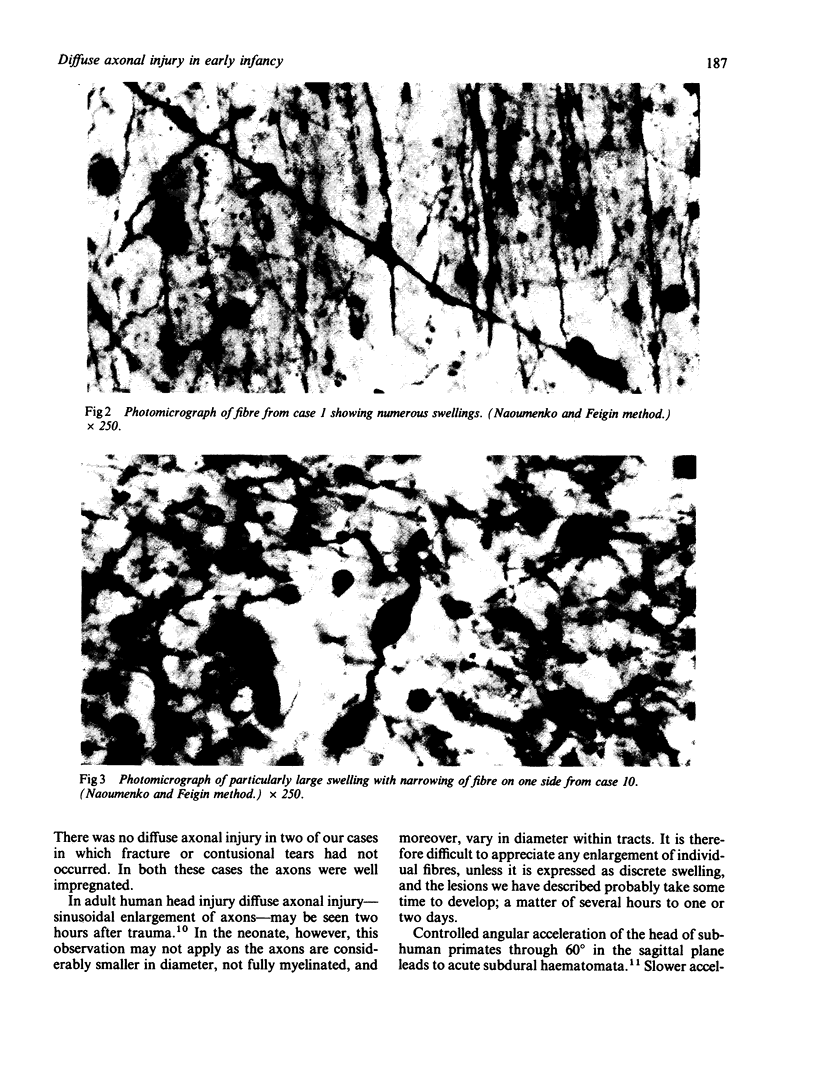
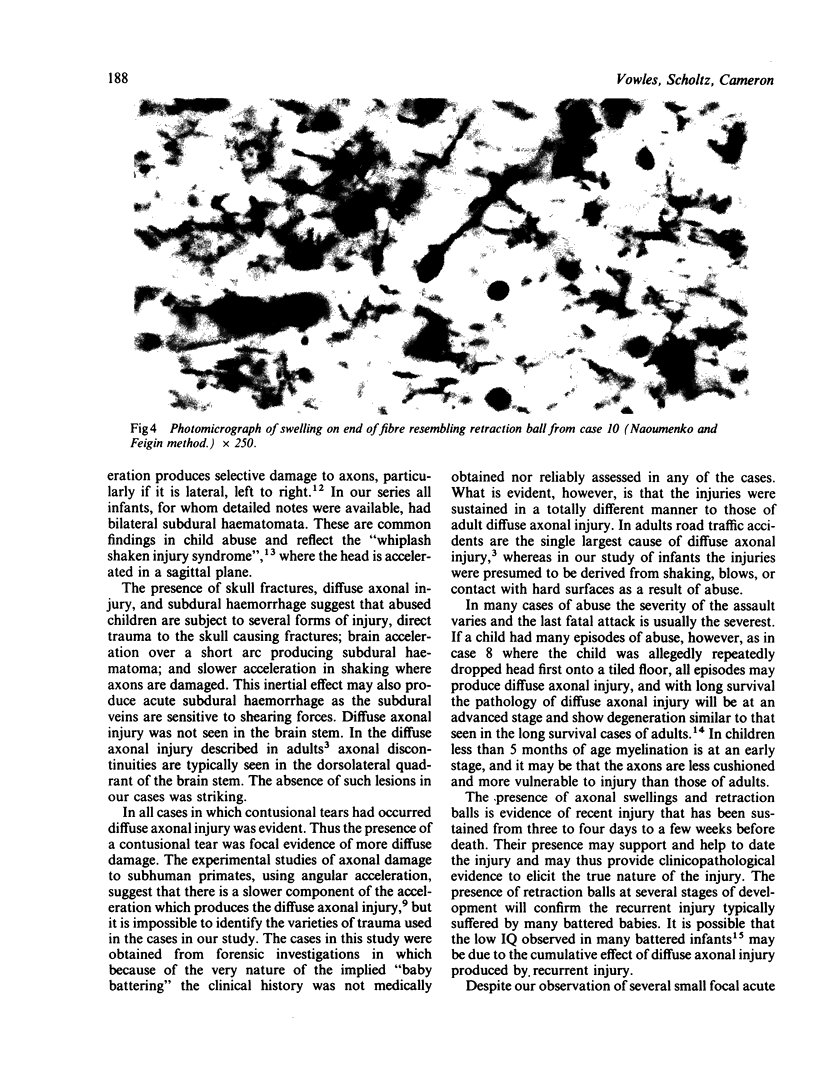
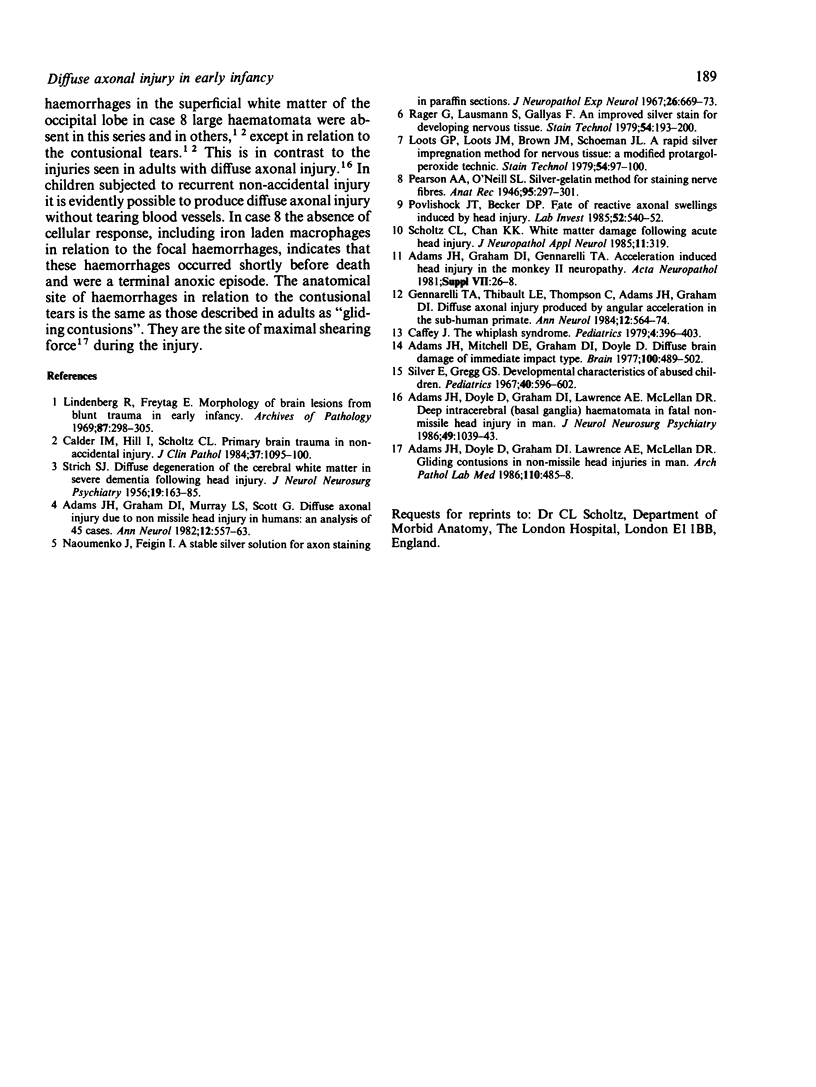
Images in this article
Selected References
These references are in PubMed. This may not be the complete list of references from this article.
- Adams H., Mitchell D. E., Graham D. I., Doyle D. Diffuse brain damage of immediate impact type. Its relationship to 'primary brain-stem damage' in head injury. Brain. 1977 Sep;100(3):489–502. doi: 10.1093/brain/100.3.489. [DOI] [PubMed] [Google Scholar]
- Adams J. H., Doyle D., Graham D. I., Lawrence A. E., McLellan D. R. Deep intracerebral (basal ganglia) haematomas in fatal non-missile head injury in man. J Neurol Neurosurg Psychiatry. 1986 Sep;49(9):1039–1043. doi: 10.1136/jnnp.49.9.1039. [DOI] [PMC free article] [PubMed] [Google Scholar]
- Adams J. H., Doyle D., Graham D. I., Lawrence A. E., McLellan D. R. Gliding contusions in nonmissile head injury in humans. Arch Pathol Lab Med. 1986 Jun;110(6):485–488. [PubMed] [Google Scholar]
- Adams J. H., Graham D. I., Murray L. S., Scott G. Diffuse axonal injury due to nonmissile head injury in humans: an analysis of 45 cases. Ann Neurol. 1982 Dec;12(6):557–563. doi: 10.1002/ana.410120610. [DOI] [PubMed] [Google Scholar]
- Calder I. M., Hill I., Scholtz C. L. Primary brain trauma in non-accidental injury. J Clin Pathol. 1984 Oct;37(10):1095–1100. doi: 10.1136/jcp.37.10.1095. [DOI] [PMC free article] [PubMed] [Google Scholar]
- Elmer E., Gregg G. S. Developmental characteristics of abused children. Pediatrics. 1967 Oct;40(4):596–602. [PubMed] [Google Scholar]
- Lindenberg R., Freytag E. Morphology of brain lesions from blunt trauma in early infancy. Arch Pathol. 1969 Mar;87(3):298–305. [PubMed] [Google Scholar]
- Loots G. P., Loots J. M., Brown J. M., Schoeman J. L. A rapid silver impregnation method for nervous tissue: a modified protargol-peroxide technic. Stain Technol. 1979 Mar;54(2):97–100. doi: 10.3109/10520297909112642. [DOI] [PubMed] [Google Scholar]
- Naoumenko J., Feigin I. A stable silver solution for axon staining in paraffin sections. J Neuropathol Exp Neurol. 1967 Oct;26(4):669–673. doi: 10.1097/00005072-196710000-00012. [DOI] [PubMed] [Google Scholar]
- Povlishock J. T., Becker D. P. Fate of reactive axonal swellings induced by head injury. Lab Invest. 1985 May;52(5):540–552. [PubMed] [Google Scholar]
- Rager G., Lausmann S., Gallyas F. An improved silver stain for developing nervous tissue. Stain Technol. 1979 Jul;54(4):193–200. doi: 10.3109/10520297909112682. [DOI] [PubMed] [Google Scholar]
- STRICH S. J. Diffuse degeneration of the cerebral white matter in severe dementia following head injury. J Neurol Neurosurg Psychiatry. 1956 Aug;19(3):163–185. doi: 10.1136/jnnp.19.3.163. [DOI] [PMC free article] [PubMed] [Google Scholar]






